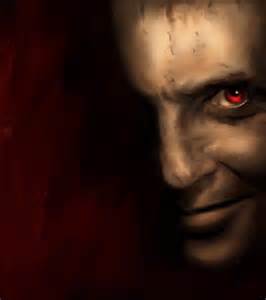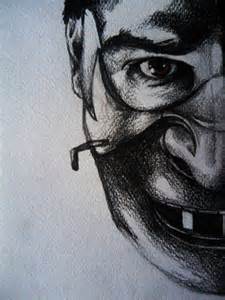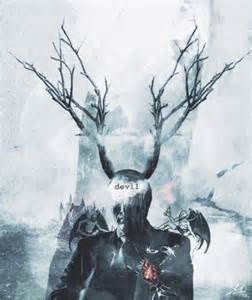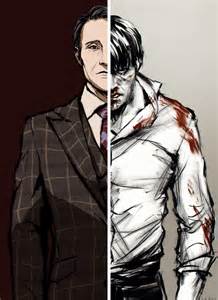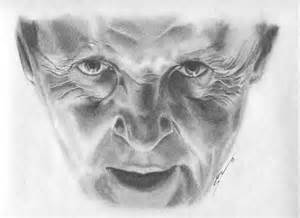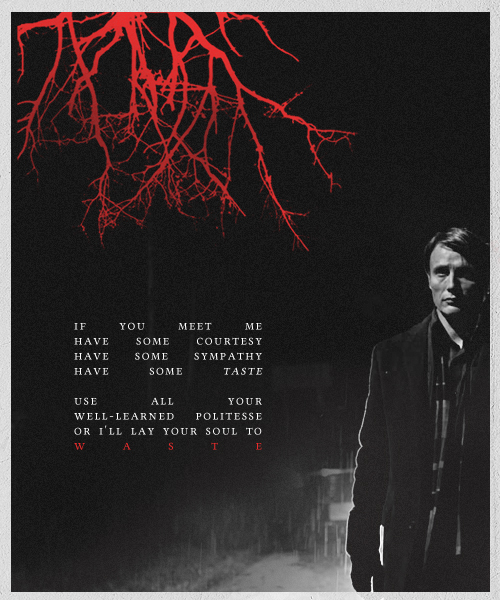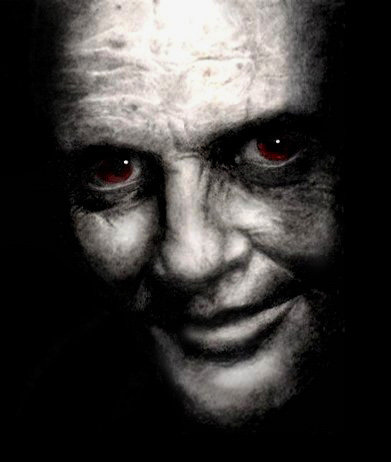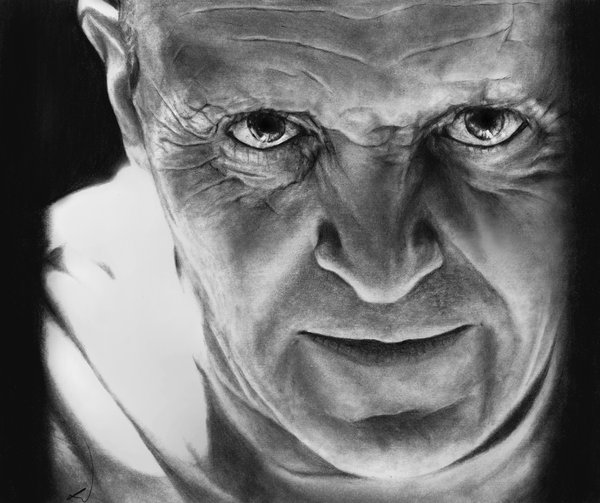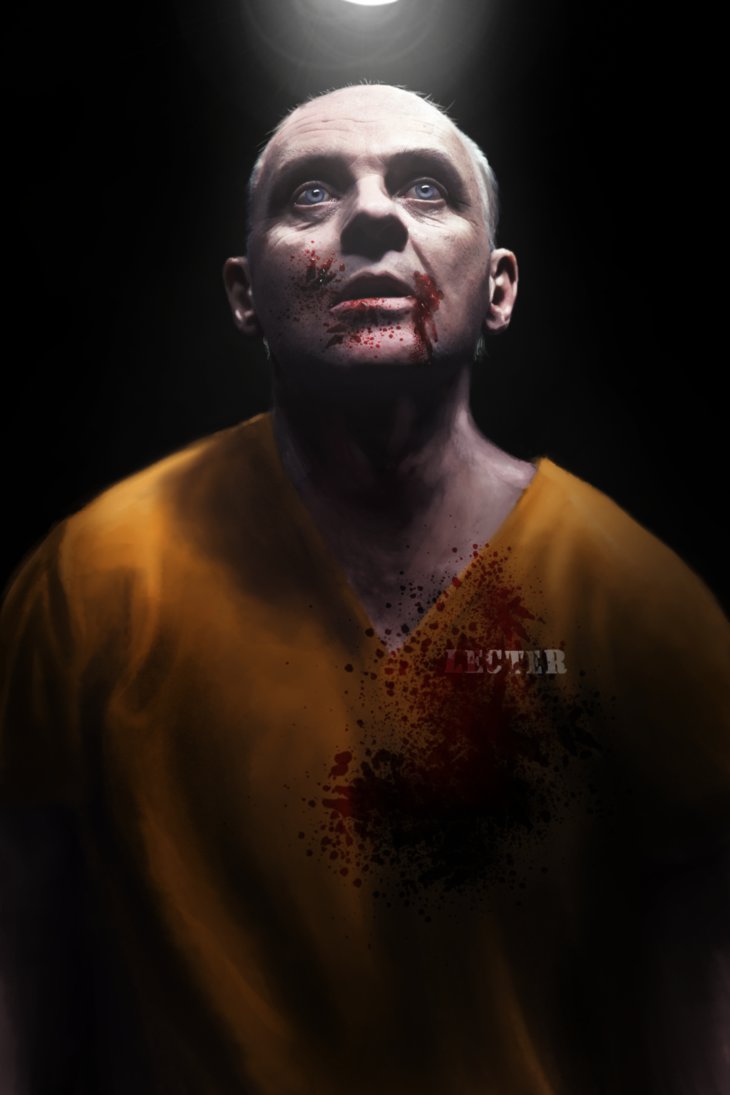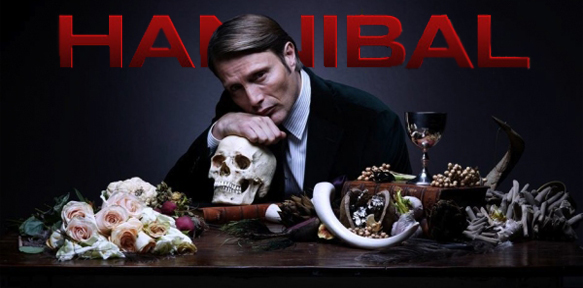The Hannibal Trilogy, as written by Harris, represents a revelatory movement.
An unraveling of modern mythologies.
To unravel what lies twisted and coiled, concealed in its Gordian knot - a knot that refers back to itself, creating a loop that must be severed - an act of violence, of violation - an intrusion.
An undesired perpetration being rape.
Ethical standards prevent such acts, forcing the actor into an assertion of will - the rude, in their concealment, and trickery, considered polite and proper, must be unraveled by an act of rudeness, by one who lives outside their social evaluations of propriety.
Their shamefulness, their feigned humility, a ruse to remain tangled and concealed.
Their are ethical in impolite ways. The act replaced by words of violence.
The knot must be cut by Alexander who has been placed in a predicament - the impropriety of the hypocrite other, offering a ruse of politeness, is unraveled by the blade that cuts through the pretentious complexities - right down to the heart of the matter - revealing, uncovering, exposing, disclosing…remembering.
In my view one of the best iconic depictions of a human forced to live within these Modern circumstances.
There are three versions of Harrison’s representations each with its flaws and perspectives.
…a more realistic representation of a manipulative genius with no great part in the events, other than an insightful interpreter.
The character, in this version, holds no big role in the story being told.
He is subdued, captured, a caged potential, having squandered its promise, and now lashing out from within its containment.
But, someone out there thought the character held a promise worth releasing from the cage to watch him run free on the screens of our projected discontent.
…a last moment insertion that demystifies the character for a modern audience.
Here the character is given a motive, reducing his supernatural appeal.
He becomes another “victim” of Naziism, here given an indirect cause.
The young Hannibal falls in love, and is hurt, offering us the typical version used to explain that which goes beyond the “normality” of the “healthy” mind.
A female, is once more, the underlying reason, that pushes the immature mind over the edge, where Nazism had placed him.
Hannibal Lecter - The Origin of Evil
[url=But, at least, we get a glimpse into the nature of a mind that bullies bullies, as a burgeoning aesthetic taste, feeling disgust towards the vulgar - what later is to be called the “rude”.
The wounds are anesthetized with a thickening scab.
Hannibal’s unemotional empathy is rising to confront the cultural anesthesia of culturally produced dullness.
…the first in the trilogy that would revamp the Manhunter themes.
Where Manhunter remained realistic, the Silence of the Lambs version of Hannibal enters the realm of the extraordinary, the fantastic.
…completes the trilogy.
Hannibal is a mature bon vivant; both hunter and hunted.
The story reduces the character to something the audience would consider palatable.
Not only is he given a typical justification, along the lines of those used to dismiss racism, sexism, homophobia, and anti-semitism, but he is amputated as a message of cost/benefit.
In the Harrison story Hannibal escapes into the masses, having seduced the girl. He lurks amongst us, wearing many faces.
In this variation Hannibal is marked for life.
He wins by losing.
His supernatural condition, marking him with six digits, is finalized with the loss of the entire hand, and of the girl.
Loneliness, amputation, the high price of being extraordinary and unwilling to serve, to direct your gifts towards helping the masses, the herd.
A wolf if it does not become a dog, must be disabled, and castrated.
The loss of the hand is the symbolic disability; and the loss of the female a castration.
The trilogy leaves us with a sense of loss: a story unfinished, an anti-hero marked but out there, somewhere, taunting us, threatening our contentment, our dull appreciation of aesthetics.
This brings us to the most recent reincarnation of the caricature, the personality with a new character.
…enters into the mythological.
Young Hannibal and old Hannibal are refurbished, into a svelte, handsome, symbol of the ideal Demon.
All retain a continuity of personality with only the character shifting according to the producer/director understanding.
Hannibal, the T.V. series inserts the personality into a world of symbolisms: role reversals, mystical world, extraordinary circumstances.
A world of ideas…memetic landscapes.
Hannibal as the overman.
